“Gharib” is a story of a national hero
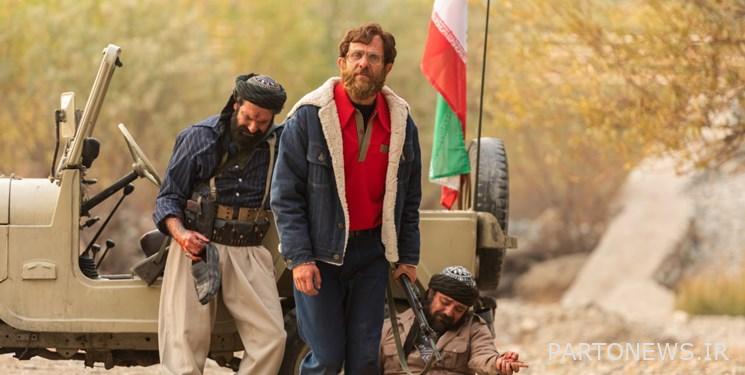
Fars News Agency, Cinema Group: These days, the news of introducing the composition of Nowruz films is the headline of many news agencies. The films include “The Stranger”, “Fossil”, “The Bride of Angel Street” and “Children of the Storm”, which will be released in Nowruz, along with a number of older films, including “Private Encounters” and “Bucharest”.
Among the works selected for Nowruz screening, only the movie “Gharib” was shown at the 41st Fajr Festival and won some of the important awards of the festival. Simorgh for field special effects, best film from the national point of view, Simorgh for face painting, set design and acting as the female lead, 5 Simorghs that received the movie “Gharib”.
“The Stranger” is an important and rare work that shines a new light on the life of one of the national heroes, Martyr Boroujerdi. In this report, on the pretext of the release of this film in Nowruz 1402, we will try to investigate its position and importance.
* About the hero-centered narrative of “The Stranger”
Making films centered on national heroes is a common phenomenon in world cinema, “The Stranger” is one such film that narrates part of the bravery of the national heroes of this border and region, the martyrs.
Looking at the history of Iranian cinema so far, films such as “Event Night”, “Beh Boodi Yas”, “Shore Shirin”, “Zibater than Life”, “Ch”, “Standing in the Dust”, “Sniper” and “Mahdi’s Position” They have narrated a slice of the lives of these heroes, but we can boldly say that “The Stranger” is a head and neck above them.
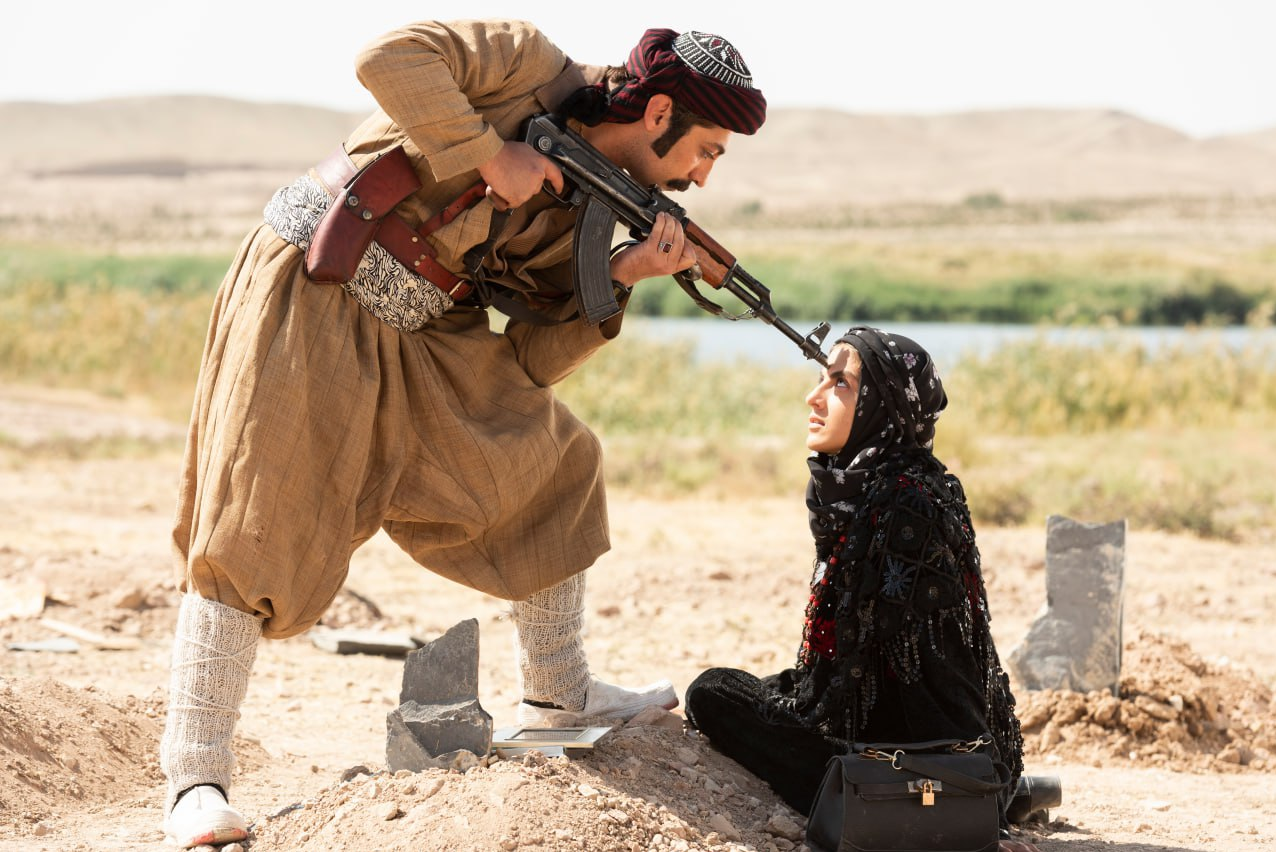
“Gharib” is a narrative of the events in Kurdistan in 1958 and 1959; which was the beginning of a path to convert Martyr Mohammad Borujerdi into the Messiah of Kurdistan. The film “Gharib” depicts a section of the commander of the Martyr Mohammad Boroujerdi in the western region, and Hamed Angha wrote the script for it using the book “Mohammed; Masih Kurdistan” was written by Nusrat Mahmoodzadeh. Mohammad Hossein Latifi, who has created a valuable work such as “The Third Day” in his career, has directed this film in order to create a work that will remain in people’s minds.
The story of “The Stranger” begins in 1958 and one week after the disappearance of Ahmad Metuslian. “The Stranger” was made in order to depict the great and magnificent character of Mohammad Boroujerdi on the screen as much as possible, and Al-Haq and Al-Nassaf also fulfill this mission well.
* Presenting a new image of a martyr
The film brings the audience closer to Mohammad Boroujerdi step by step and introduces him to his personality angles in different situations, the audience who may have only heard the name of Martyr Boroujerdi after about 120 minutes becomes so fascinated by the greatness of his character that even though The film does not end with his testimony, after the final credits, he will definitely not be able to move for several minutes after watching this volume of sacrifice. The filmmaker emphasizes to depict the tenderness of Muhammad’s soul in front of the homeless people of Kurdistan along with his stubbornness against the twin counter-revolution and to show a new image of his character apart from all the features of the struggle and guerillaism of Martyr Boroujerdi.

In this film, Boroujerdi is from cinema and poetry, he sees the film of the Battle of Algeria and Muhammad, the Messenger of God, to find out how Kurdistan can be cleansed of the anti-revolutionary existence without war and bloodshed, like the conquest of Mecca, even though the sequences of Muhammad and his wife Fatima in the film are limited. but the same two or three sequences delicately depict his romantic relationship with his wife.
Muhammad is so patient in the face of misfortunes and malice of enemies that he even angers those around him. “Be patient” is a verbal reference that is especially used in sensitive situations. Babak Hamidian’s wonderful make-up and brilliant acting have had a significant impact on the drawing of this popular and lovable face. Hamidian has been able to show Boroujerdi’s existential calm well and elegantly.
*Features of the movie “Gharib”
One of the disputed issues at the beginning of the victory of the revolution, which the enemies were maneuvering on, was to separate the ranks of the army from the IRGC and call them tyrants, but “Gharib” with the support of a strong script based on historical documents exposes this false claim well. By showing the sacrifices of the Islamic Republic Army, the film considers Martyr Mohammad Borujerdi as the link of all those who died for the country and the people.
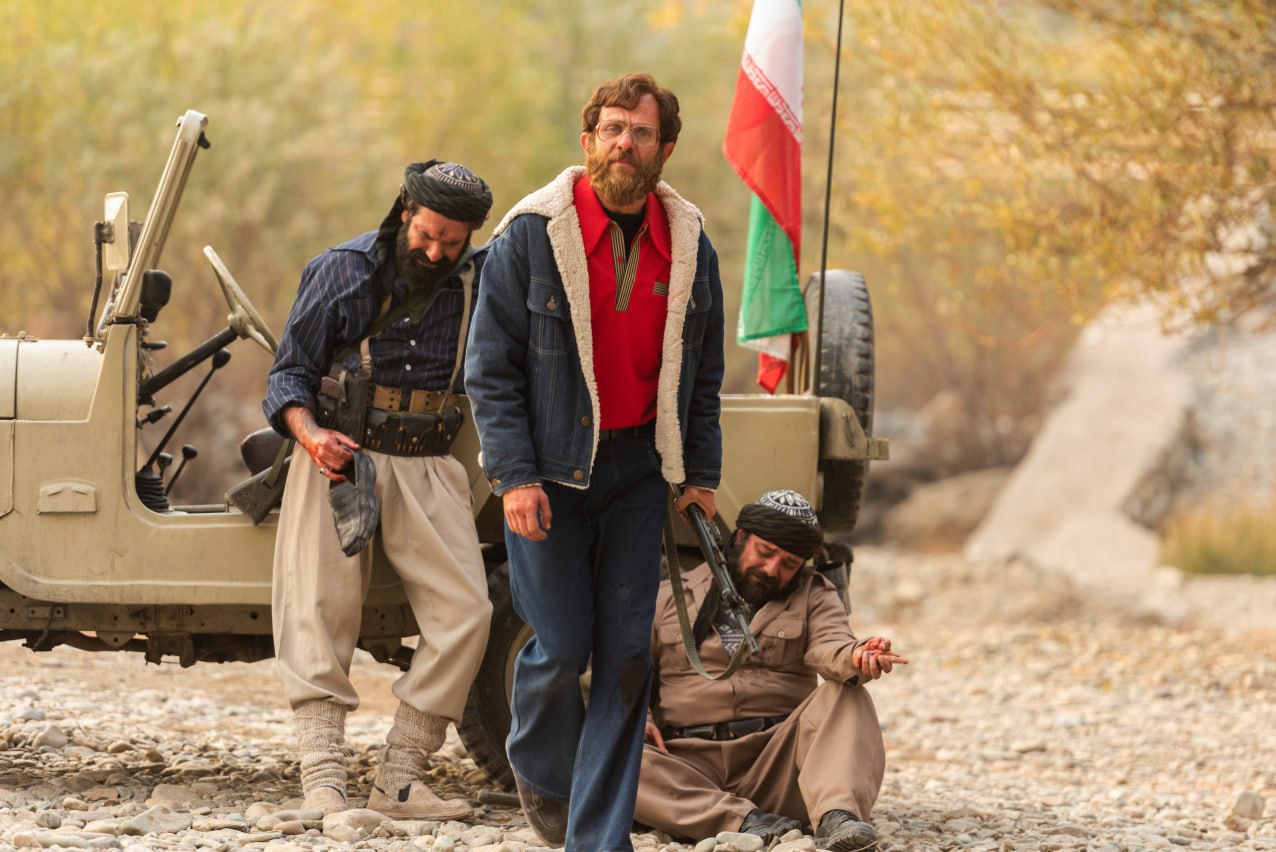
Along with the heartbreaking scenes of the killing and killing of the defenseless and innocent people of Kurdistan, “The Stranger” has no shortage of emotional moments that show Boroujerdi’s great and quick-suffering spirit; Let’s remember the sequence of Borujerdi consoling the bereaved mothers or his secret cries mourning the martyrdom of his comrades. Also, the film has been successful in showing the brutality of the counter-revolution, including the democrats, the hypocrites, and the hypocrites, criminals who do not hesitate to sacrifice their wives and children, let alone others, to achieve their sinister goals.
Most of the characters in the story are men by nature of the harsh atmosphere and war and bloodshed, and in the meantime, Kajal is the only representative of Kurdish women and girls that the film has addressed; Kajal is educated and a doctor, he is a wounded anti-revolutionary, despite the anger and hatred he has towards them for killing his wife, under the influence of Boroujerdi’s behavior, he is willing to put aside the grudge to build a bright future.
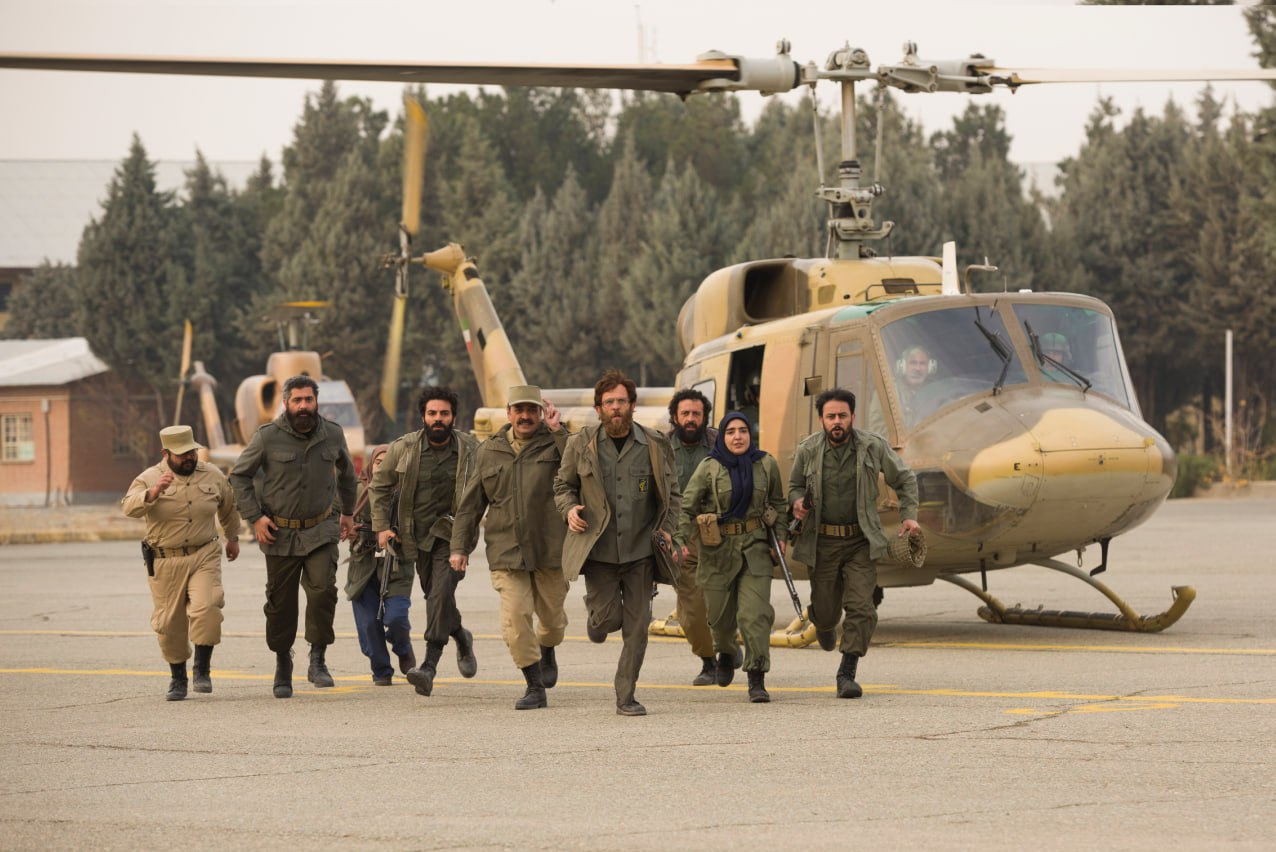
“The Stranger” tells its story correctly, cleanly and flawlessly, all the sequences of the film are in their place, and even though the film is almost long, it narrates its story so breathtakingly that the audience does not notice the passing of time. The film has a suitable beginning and end, and the filmmaker cleverly repeats the sequence that he transferred at the beginning of the film to start a flashback to the past and create a sense of fear of insecurity to the audience at the end, so that it is self-explanatory of all the messages that he has depicted throughout the film. have became; A bright and hopeful ending. It’s as if the filmmaker is working with the Kurdish people and Kajal is assuring the audience that there are no shortage of heroes like Boroujerdi in this country, and if he does, they won’t let even a bit of this country’s soil fall into the hands of the enemies, and according to Khomeini the Great, “the future soldiers are the children in the sack”.
* “Alien” and the world he creates
A great philosopher once said, the most important feature of any “work of art” and its difference from other things is that the work of art has a “world”. The meaning of “world” and “universe” is the semantic space and associations that are created for the audience. He said that every “work of art” advances the earth and builds the world. The “ground” of the work can be considered as the elements of the film (editing, filming, sound, light, etc.) and the “world” of the work is the meanings and associations created for the audience. Both of these parts seem to give meaning to each other, and it is in the conflict between “earth” and “world” that the “work of art” is formed.
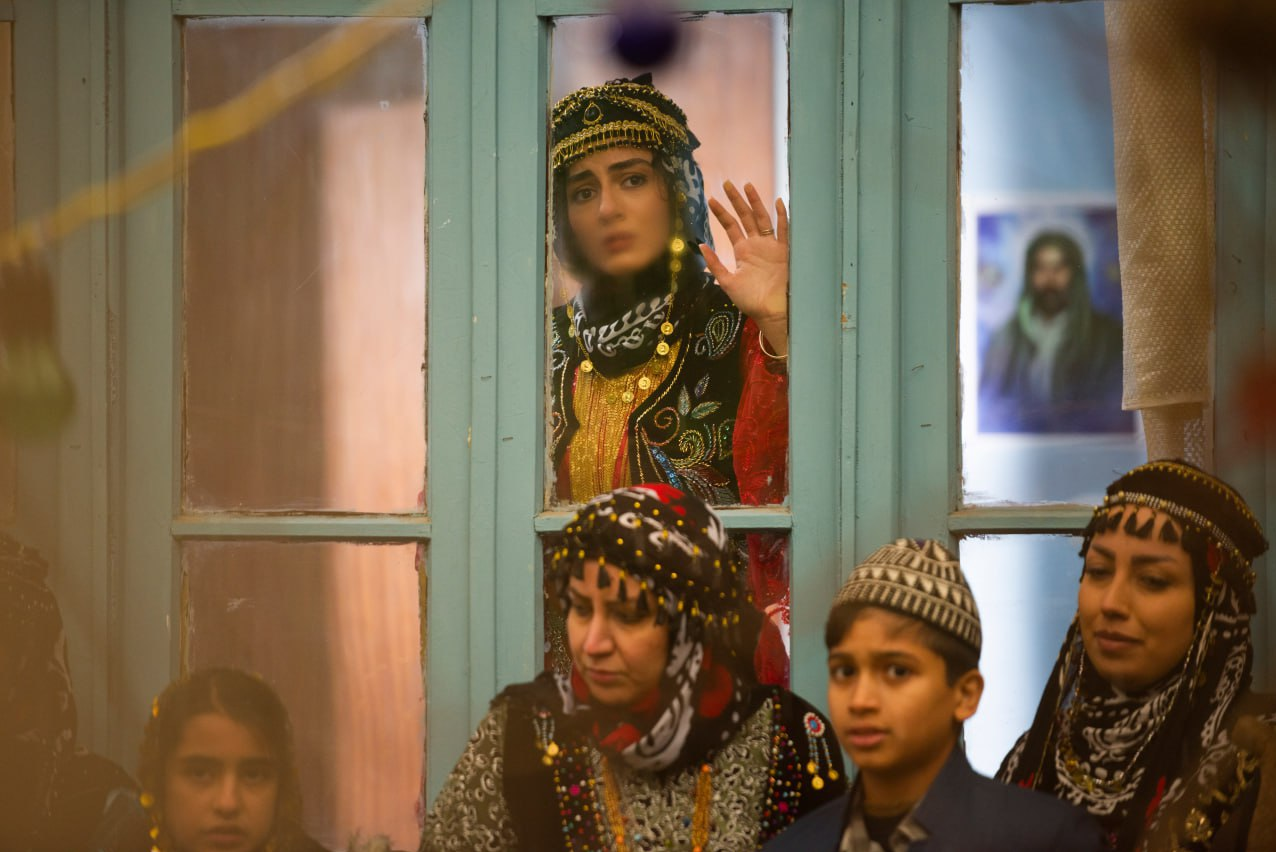
Based on this theory, it can be written: every “work of art” creates a world and draws the audience to its own land, a world that should establish a meaningful relationship with the time in which it was created (the audience’s life time). “Gharib” is one of those works of art that creates for the audience of the world. The light, narration, filming and editing have helped the audience to enter the world of the film’s text moment by moment. Even though Gharib has set a story from the past as his subject, his modern and contemporary reading of the subject has undoubtedly helped the audience to feel very close to it.
* The need for provincialism to overcome crises
“The Stranger” shows a tangible and believable image of Boroujerdi’s messianic face and soul, and the coincidence of its release with the current conditions of the society is a blessed event; Because “Alien” can be a slap to the managers and officials of the country that cultural work should be done in front of protestors first, we should talk to them and inform them, which Borujerdi considers important with all his busyness; Let’s remember the scenes where he talks to the prisoners for hours before the execution of the sentence in the prison so that they can distinguish right from wrong and according to Boroujerdi: “If we can pull two people towards us, we have won and we must always remember that war is the last resort”.
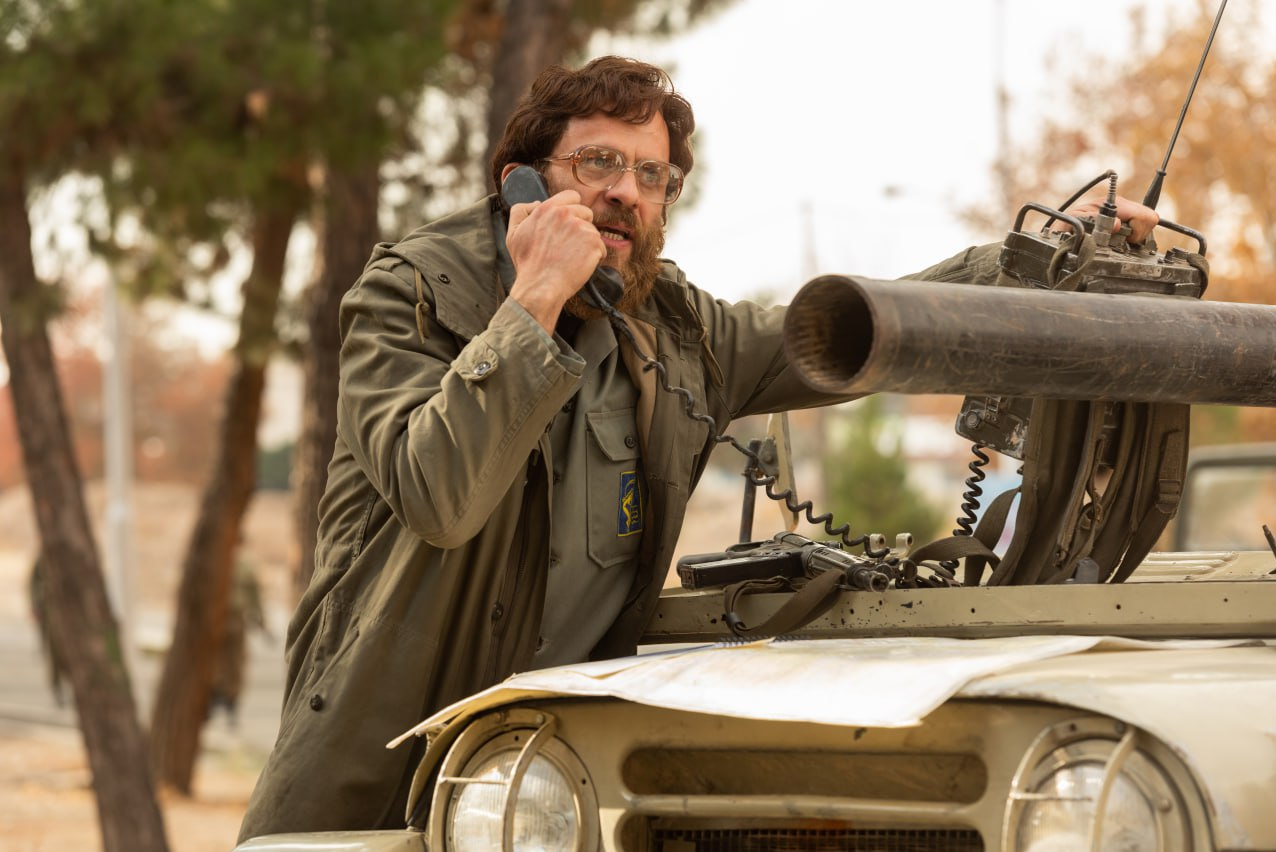
A clear example of this strategy is the fate of Sirvan’s character in the film. Also, the film shows well the necessity of provincialism to overcome crises. Let’s remember the constant repetition of this sentence from Borujerdi that I am the Imam’s soldier.
last word
In the end, it should be said that “The Stranger” is one of the most important, most influential and best narrations about the martyr. In order to raise a revolutionary and committed generation, they should be introduced to the martyrs. There are many martyred commanders and commanders who, with their speech, behavior and revolutionary and Islamic beliefs, each of them were an effective role model for those around them and their relatives in their time, and after their martyrdom, other aspects of their mystical and moral character were revealed so much that the field of transformation of many The youth provided this border and landscape, but these days they have been forgotten and only their names can be seen on the streets and highways of cities and villages.
Today’s generation, by watching movies like “Gharib” and…., realizes that the security it has today was not easily obtained and many pure bloods were shed for it. Therefore, it is necessary to adopt a plan so that today’s teenagers and young people watch informative films like “Gharib” without fail.
The end of the message/ 1871

